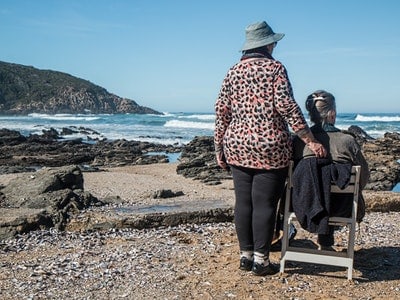Take Extra Care When You are Making a Will Because it Involves a Lot of Things
 There are a lot of major decisions to finalize when you begin to write your will. Actually, just the mere thought of having to write a will is already harder than writing it. You do not want to be careless about the deliberate decisions you are making in regards to your business, children, and assets. Keep in mind that even if it is difficult, making a will is one of the best things you can do for your family. These decisions should not be left for the state to take care of.
There are a lot of major decisions to finalize when you begin to write your will. Actually, just the mere thought of having to write a will is already harder than writing it. You do not want to be careless about the deliberate decisions you are making in regards to your business, children, and assets. Keep in mind that even if it is difficult, making a will is one of the best things you can do for your family. These decisions should not be left for the state to take care of.
Crucial Things You Must Know
In some circumstances, some people start to write their will after the 1st child is born. By doing this, the person is securing their wishes for the child’s future if both parents die. You can write in your will the person(s) you want to nominate to take care of your child until adulthood. These are what you need to consider when choosing a guardian:
- You have a similar lifestyle, religious beliefs, and values – whether theirs is almost like yours
- The person who is already bonded with your child.
- If the nominee has children or plans to have them.
- The stage of transition, when it comes to lifestyle and location, your children will go through.
- Can they handle the role financially, physically, and emotionally?
What you want for your children can also be in your will which may indicate. These could be their residence, education and extra-curricular activities you want them to have, who they can see, and their values. Some thoughts can also be included like pocket money access and others. The information you write in the will can be kept, and the guardians can access it.
Identify the Assets You Have
Before consulting a lawyer, make a comprehensive inventory of any financial assets. This will include credit cards, bank account, retirement funds, investments, and others. If you are not able to determine what your assets are, who will receive them is unimportant.
Today, it is also important to take into consideration the things that are not traditional properties like biological and digital assets. These digital assets are not only the online bank accounts because there are now domain names and social media accounts you can use. For the parents who underwent a treatment to conceive a child or children, the frozen leftover embryos should be considered.
After you have compiled all of the information, do not just put everything somewhere that no one can access it like a secured box. You will leave a big hassle for your family because they would have to go to court and have the box legally opened using a drill. It also consumes a lot of time.
You Need an Executor
This is important because your executors are those you want to be in charge of monitoring if your instructions are being carried out. It is possible for people to do probate every day, but it does entail some work, time and organization. Choose someone who you are comfortable with and will adequately understand things. When you have someone in mind, you can ask them to be the executor of your will. You and your spouse can name each other executors, or if that will not be possible, one of your siblings can be an executor.
There are times when a solicitor will try to get you to make executors, but some of them charge a lot and can still encounter problems. Also, if the executor does not want to handle the probate, they always have an option to pay for a solicitor.
Beneficiaries
The beneficiaries are the charities, organizations, or persons that will benefit from the will you have. Your beneficiaries may be entitled to gifts or share in the residuary estate you left behind. A residuary estate is the one that’s left after any debts have been paid, including funeral and testamentary costs. The share of each beneficiary is mainly expressed in the form of a percentage of the residuary estate.
Sometimes, assets or items instead of money can be part of what the beneficiary is entitled to. For instance, a person’s cherished things. This may come up when a particular item should be given to a beneficiary instead of selling it and form an estate’s part.
There is no age limit to becoming a beneficiary. Although, if there is a minor listed who is a beneficiary of shares and property, the executor will be responsible for it. The executor should administer the assets according to the will.
After deciding who will the beneficiaries be, you should be able to give their names and contact information. Moreover, you may provide a charity’s business to make sure that your estate will go to the mentioned entities.
A Living Will
Sometimes, a living will is referred to as a declaration or a healthcare directive in advance. This one will govern your wishes at the end of your life- it should be made while you are still healthy. The document allows you to refuse or accept certain care at the end of your life if you are ill. You should state in your declaration if you do not wish to prolong your life in a certain way. This is not the same as a Do Not Resuscitate (DNR) order. This is a form that may be provided by a doctor to an elderly or terminally ill patient not to use CPR in case of an emergency.
However, even if your wishes are written there, a crisis can happen which is why it is also recommended that you appoint an advocate. This should be someone who can become a healthcare proxy or agent when you are ill. The important thing is to choose a person who is trustworthy, available and will stand firm even if there is a crisis.
A Spouse Joint Property is Not Part of the Will
This is another kind of ownership and most of the time they are bank accounts and real estate that spouses share. These are not going to be distributed by the will of one person. Instead, they are going to be passed on to the spouse who is surviving under the law. Although, if the account is only under one name, it will be passed through the will he or she wrote.
The property also gets distributed by the will if it is under tenancy in common. For instance, if someone had a property that shares ownership with the siblings by tenancy in common. It does not automatically mean the person’s share of the property will go to the surviving siblings. It will be passed on based on what they have written in their will.
Managing Difficult Situations
Life is not always transparent because it may have complexities when it comes to business, financial, and family matters. The good thing is that wills are customizable so it can accommodate certain circumstances in your life. The ideal way to make sure it happens based on what you want is to consult with a solicitor or a professional. By doing this, you are making sure that your wishes are documented properly.
The circumstances which may be considered complex and is warranted through consideration before writing a will includes:
- Excluding a person who is expecting to be a beneficiary.
- Any complexities from a previous marriage or divorce and other family complications.
- Providing for any special need beneficiary.
- A self-managed superannuation fund that is half-managed.
- Being the director of a company.
Make sure that you explain these certain circumstances to the person writing your will. For instance, why you want this person to be excluded or leave a lesser share. The information you give may be secured in a file and be used as a reference if someone makes a claim against your wishes.
It is recommended that you seek advice from a specialist when your situation is not completely straightforward.
Even if You Already Have a Will, You Might Need to Update it
You will certainly need an update if one of your beneficiaries dies if you get married or divorced if you disposed of an asset you were thinking of leaving and other similar circumstances. You might also have to make changes if your relationships or finances have changed. For instance, if you are now in a new place where they have different laws when it comes to marital property, it is easier to amend a will rather than creating a new one.
What if You are an Expatriate?
In Singapore, when a person passes away intestate, implications may be applicable especially if there are children in the picture.
Every jurisdiction has different laws on intestacy when it comes to the distribution of assets when one dies. In Singapore, especially if the person has children, the living spouse gets 50%, and the other half is normally equally divided among children. In case you both passed away, which leaves children orphaned, everything will be distributed among your children.
If the will is written and executed in Singapore and the majority of your assets are still in your home country, your will can also be recognized. However, if there is no common law in your home country, there are other laws that should be considered to recognize your will.
If a will is written in your country and some of the assets are in Singapore, your executor would have to get a grant of probate before dealing with your assets in Singapore.
Enduring Power of Attorney
When you write your will, it is wise to also consider preparing POAs. The ensuring power of attorney (POA) lets you appoint a person(s) to handle decisions for you when you are unable to do so. It gives the responsibility to another person you trust and chose, to make decisions in your best interest. This could mean they will manage your finances, or even making personal decisions. You can prepare ensuring POA together with your will.
Do Not Forget This
You should never forget to ask the executor and guardian you chose if they are willing to handle the role. Take into consideration the emotional and financial load it may cost them. A guardian may have a big family tomorrow and none today, so they will need a lot of additional expenses.
A Legal Software Program
You can use online resources or legal software program to help you write a will. There are a couple of online resources you can afford and softwares that help prepare a will. These products are going to guide you in drawing out the distribution of your property and ask you for an executor. This might be a cheaper option, but there are also risks to this. This option is more suitable if your affairs are very straightforward.
What Happens to the Leftovers?
No one really has time to itemize all of the possessions you have in life. You might want to write instructions so the beneficiaries will not feel the necessity to save everything you own. You can instruct your remaining possessions to be given out to family, friends, and even charity. Before leaving your things to a residual beneficiary, you should make an inventory of all assets to make sure you are not throwing away any gems. You might want them to go to a certain person instead of disposing of them.
After writing a will, inform a couple of trusted loved ones about it, and where they can find it if needed. It is crucial that everyone prepares a valid will, but it is even harder for people with children. Planning now can be beneficial in the long run, especially to the ones who will remain. Think of making a will now so you will not have anything to worry about.










